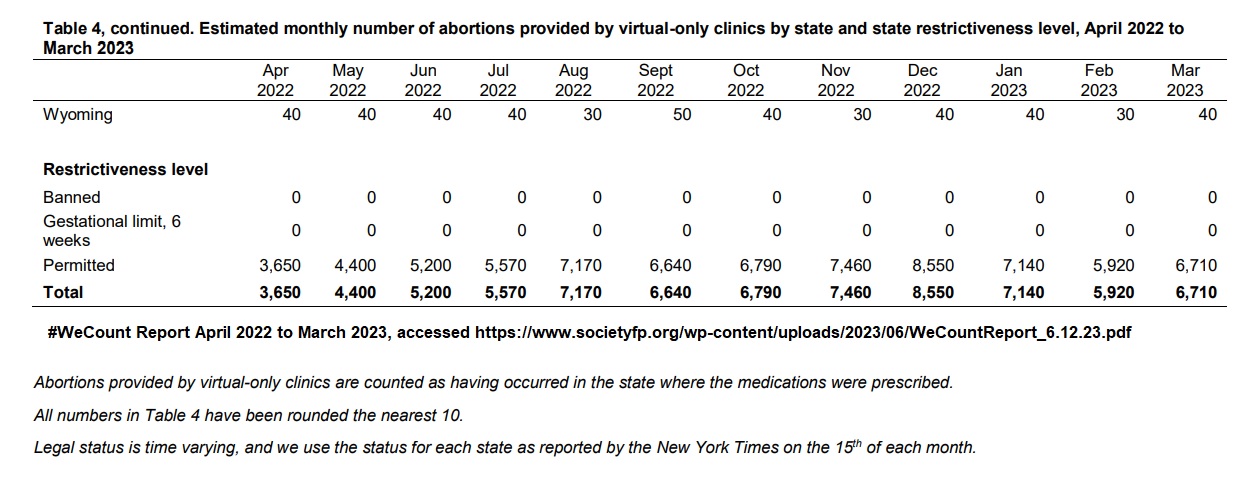Abortion pill dispensaries are on the increase following the Supreme Court’s ruling in Dobbs v. Jackson Women’s Health Organization overturning the Roe v. Wade decision last June. Since that time, facilities offering chemical abortions also increased — and prescribers continue to flout approved FDA gestational limits.
In addition, due to so-called shield laws, abortion pill prescribers and Honeybee Health pharmacy are threatening to ship the drugs into states that protect preborn children, while law enforcement ignores abortion pills flooding into the United States from unregulated, unapproved sources.
In April of 2021, under the guise of the COVID-19 pandemic, the U.S. Food and Drug Administration loosened its safety regulations known as REMS to allow for limited mail-order pharmacy distribution. By December of 2021, the Biden FDA had further weakened the REMS by eliminating the in-person dispensing requirement and enabling the abortion pill to be permanently shipped by mail.
Then, in January 2023, the Biden FDA further gutted the FDA’s safety protocols on the drug by announcing it would allow retail pharmacies to dispense it.
Today, abortion pill prescribers continue to flout the FDA’s safety regulations by prescribing the pills well past the FDA approved gestational limit, promoting unapproved protocols or veering away from FDA approved rules by dispensing abortion pills to women who are not pregnant — and sometimes leaving women to deal with dangerous ectopic pregnancies on their own.
Virtual abortion pill dispensaries increase
In the early days of legalized abortion, unscrupulous abortion profiteers and opportunists at brick-and-mortar facilities quickly attempted to cash in on the burgeoning abortion business.
Something similar is happening today with the proliferation of unregulated abortion pill dispensaries morphing into something resembling pill pushers — far from the description of ‘health care providers’ the industry portrays themselves to be. Today, many online abortion pill dispensaries (which distribute potentially dangerous drugs to minors) openly admitting that they spend almost no time with clients while providing little to no follow-up.
All anyone needs to sell abortion pills today are a computer, phone, and the ability to write a prescription — which is why one abortion provider recently called the selling of abortion pills by mail a “great business model.”
A June 2023 issue brief published by the pro-abortion group Advancing New Standards in Reproductive Health (ANSIRH), “Availability of Telehealth Services for Medication in the U.S., 2020-2022,” found that “The number of facilities offering medication abortion increased from 733 in 2020 to 773 in 2021 to 789 in 2022.”
“The proportion of those facilities that provided telehealth with the option to have abortion pills mailed to pregnant people increased from 52 (7%) facilities in 11 states in 2020 to 91 (12%) facilities in 25 states in 2021 to 243 (31%) facilities in 27 states in 2022. This included both brick-and mortar-facilities, as well as virtual clinics that only provided telehealth services,” ANSIRH also claimed.
ANSIRH’s brief also claimed that “In 2020, there were no virtual clinics providing medication abortion,” But by 2021, “32 virtual clinics (4% of 773 facilities offering medication abortion) began providing care via telehealth in 22 states and DC.”
“By 2022, 69 virtual clinics (9% of 789 facilities offering medication abortion) provided this care in 23 states and DC. Virtual clinics were largely concentrated in the Northeast and West, while state bans were enacted in the Southeast and Midwest prohibiting any type of abortion, including telehealth medication abortion,” ANSIRH claimed.
Similarly, #WeCount, a research project from the pro-abortion Society for Family Planning (SFP), published its report, which looked at abortion numbers and other data for nine months post-Dobbs (July 2022 to March 2023). And, while there appears to be an overall decrease in abortions nationwide, the #WeCount June 2023 report indicates that the proliferation of unregulated virtual abortion pill sales has been steadily rising, with an overall increase of more than 85% post-Dobbs.
“Notably, while the overall number of abortions decreased, abortions provided by virtual clinic telehealth providers increased from an average of 4,025 abortions per month in the two months before the Dobbs decision (5% of all abortions), to an average of 7,461 abortions per month in the nine months following the Dobbs decision (9% of all abortions),” #WeCount’s June 2023 report claimed. “This change represents an increase of 85% in the number of abortions provided from virtual-only services, comparing post to preDobbs.”

WeCount virtual abortion pill stats post Dobbs April 2022 to March 23
In just one example, while the virtual abortion pill dispensary Just The Pill claims online to have “helped our 6,000+” client, Hey Jane claimed on their website that since the Dobbs decision they have seen a 164% increase in patients in multiple states: a 301% increase in patients in Illinois, a 231% increase in Colorado, a 178% increase in New Mexico, a 116% increase in California, a 97% increase in New York, and a 95% increase in Washington.
The online abortion pill company also claimed to have “[h]elped our 30,000th patient” to abort a child, and boasted that they now ship in 11 states and counting — including Connecticut, Maryland, Massachusetts, New Jersey, and Virginia, increasing their “team size by 54%” and becoming the “first 100% online telemedicine clinic to accept insurance for abortion services.”
Abortion pill prescribed later in pregnancy
Since the Dobbs decision allowed states to regulate all abortion, there has been a proliferation of brick-and-mortar abortion facilities closing or relocating. However, Big Abortion is beginning to adapt to this changing landscape by offering the abortion pill later in pregnancy and flouting the FDA-approved limit for prescribing chemical abortion pills (70 days/10 weeks).
Industry statistics show that the failure rates for the abortion pill regimen increase as the gestational age of the preborn baby increases. Yet, the abortion pill is being used well into the second and even third trimester of pregnancy.
A report entitled, “Trends in Abortion Facility Gestational Limits Pre- and Post-Dobbs,” published by ANSIRH found that due to state laws which banned or restricted abortion, “fewer states offered medication abortion in 2022 (37 states + DC) than in 2021 (49 states + DC). Facilities in 13 states did not offer medication abortion as of October 2022.”
“However, gestational limits for medication abortion increased in facilities in 19 states. Among facilities providing medication abortion, those that provided care after 10 weeks increased over time, from 34% (261/773) in 2021 to 37% (292/789) in 2022. Of those 292 facilities, 268 offered medication abortion up to 11 weeks, 3 offered up to 12 weeks, 17 offered up to 13 weeks, and 4 offered up to 14 weeks,” the report claimed. [emphasis added]
Shield laws enable abortion drugs to be shipped into states protecting the preborn
In addition to prescribing the regimen later in the pregnancy, abortion providers are threatening to ship the deadly drugs into states where preborn children are protected in law.
This week, the New York State Legislature also approved a bill to protect abortionists, according to the New York Times (NYT). The bill reportedly “stipulates that New York courts and officials will not cooperate if a state with an abortion ban tries to prosecute, sue or otherwise penalize a New York health care provider who offers abortion via telemedicine to a patient in that state, as long as the provider complies with New York law.”
“New York’s legislation is expected to have a notable impact. Several [abortion] providers in New York say they plan to send abortion pills to patients in all restrictive states, and a few providers are speaking publicly, which those in other states with shield laws have so far not done,” NYT added.
The abortion pill manufacturer, Danco Laboratories, is headquartered in New York.
“I’m going to mail pills as soon as the governor signs the bill,” abortionist Linda Prine, co-founder of the Miscarriage and Abortion Hotline, told NYT. “This is the first time we’re able to do something to fight back.”
Prine once claimed women who take the abortion pill are often “freaked out” by what they see — something Live Action News has previously documented. The fact is that the reality of abortion is the deliberate killing of a preborn baby.
Dr. Prine told NYT that at least three other doctors would mail the abortion drugs to clients in all states with restrictions or bans.
In addition to Prine, Jillian Barovick, a midwife and co-founder of Juniper Midwifery, told the media outlet that she also hoped to use the shield law to mail pills to patients in states that protect preborn life: “It’s definitely something that we would want to explore and make it happen.”
The media outlet also reported that since a telehealth abortion shield bill passed the California Senate last month, Honeybee Health (a radically pro-abortion online pharmacy based in California and co-founded by Jessica Nouhavandi), is also considering shipping the drugs to all 50 states. “We are anxiously awaiting the passing of the California shield law,” Nouhavandi said.
In addition, unregulated and often uncounted abortion pills are flooding into the United States from businesses such as Aid Access with no response from law enforcement. Illegal abortion pill syndicates continue to smuggle or disperse abortion drugs across the U.S. border from Mexico despite warnings from the U.S. Drug Enforcement Administration that fake prescription pills from that region could “contain a potentially lethal dose of fentanyl.”
According to the NYT, “Other abortion providers have indicated interest in using shield laws if they could send prescriptions to a pharmacy that would mail the pills rather than stocking and shipping the medications themselves.”
Data from Planned Parenthood’s former “special affiliate,” the Guttmacher Institute, revealed that by 2020, abortion pills made up over half of all abortions (53%). Accumulative data published by the FDA reveals that the abortion pill has ended the lives of 5.6 million babies in the U.S. since its approval in 2000.
Live Action’s I Saw My Baby website details the horrific fallout when women see their own aborted children floating in the toilet after taking the drugs at home. A newly published Live Action white paper details the ongoing way that the abortion industry flouts FDA safety regulations and reveals how the abortion pill’s money trial leads to conflicts of interest on safety claims.








